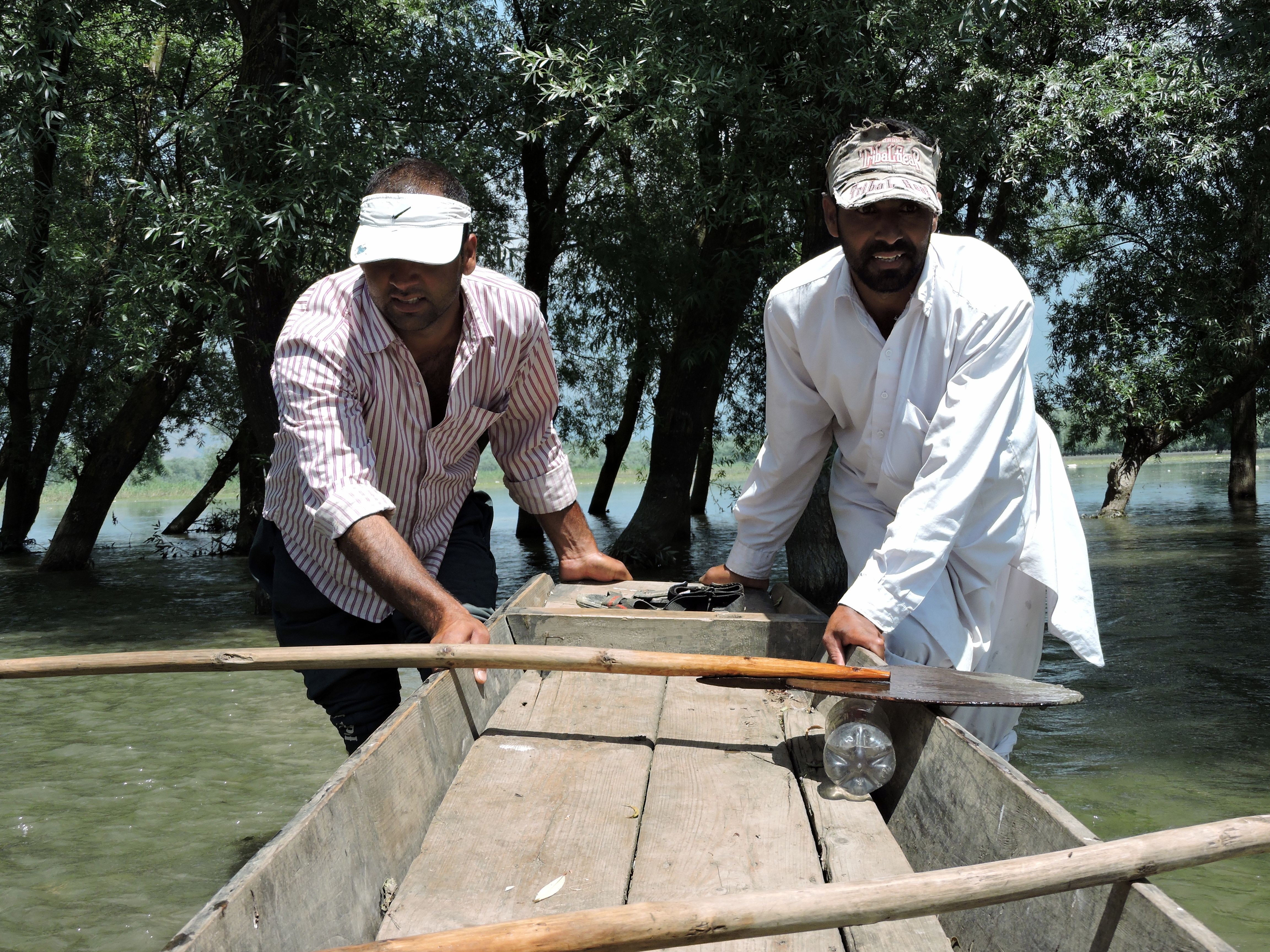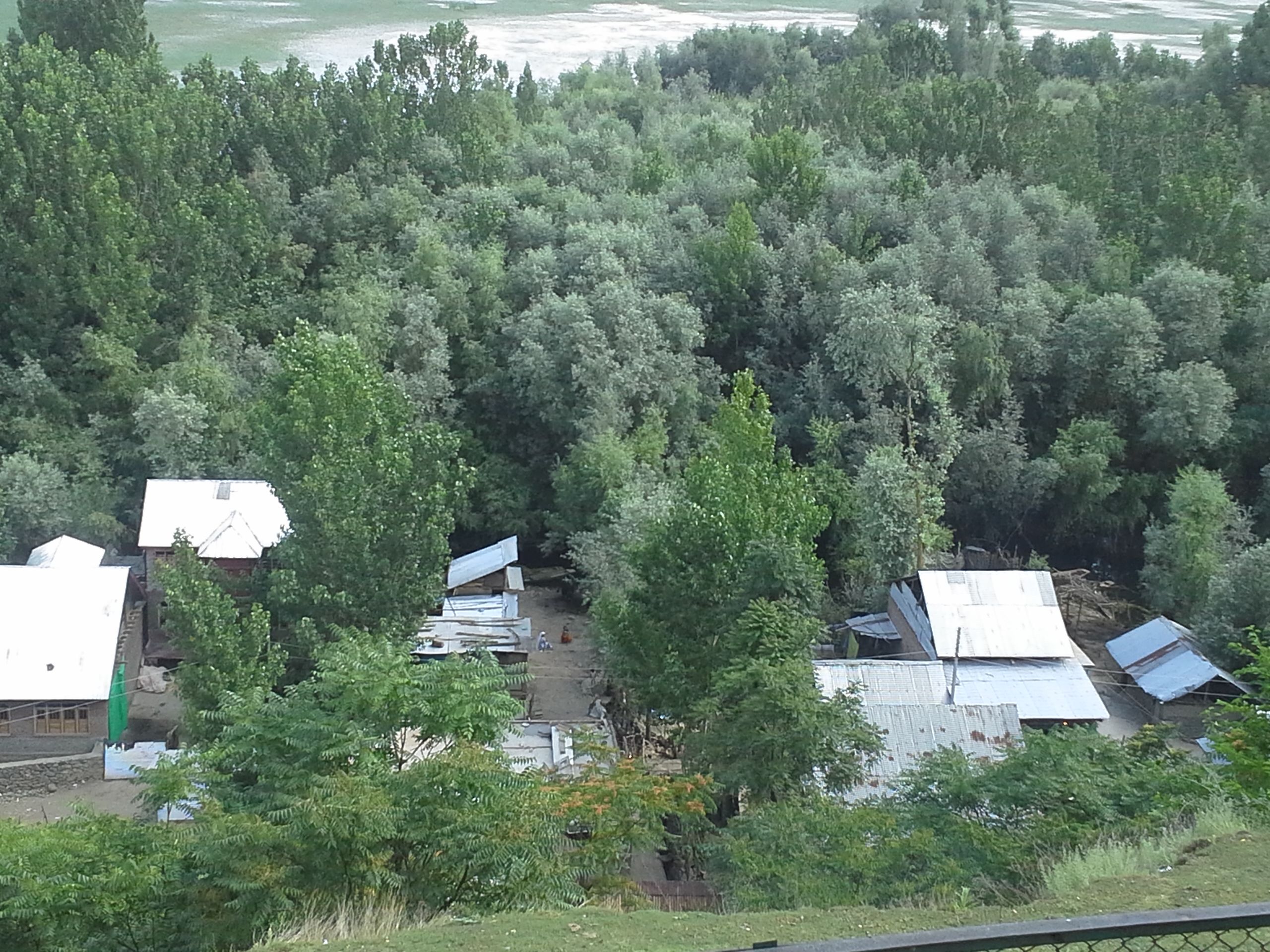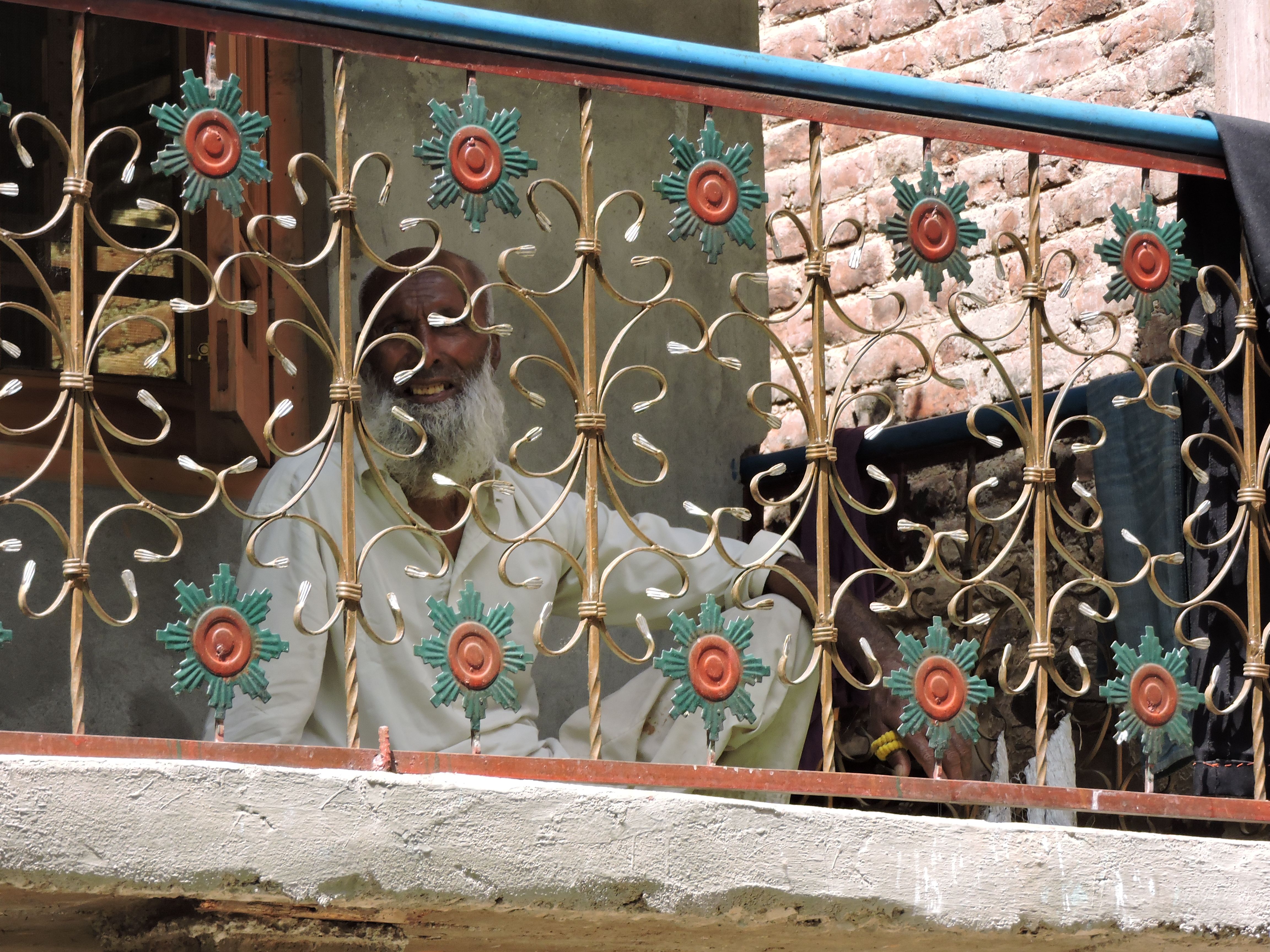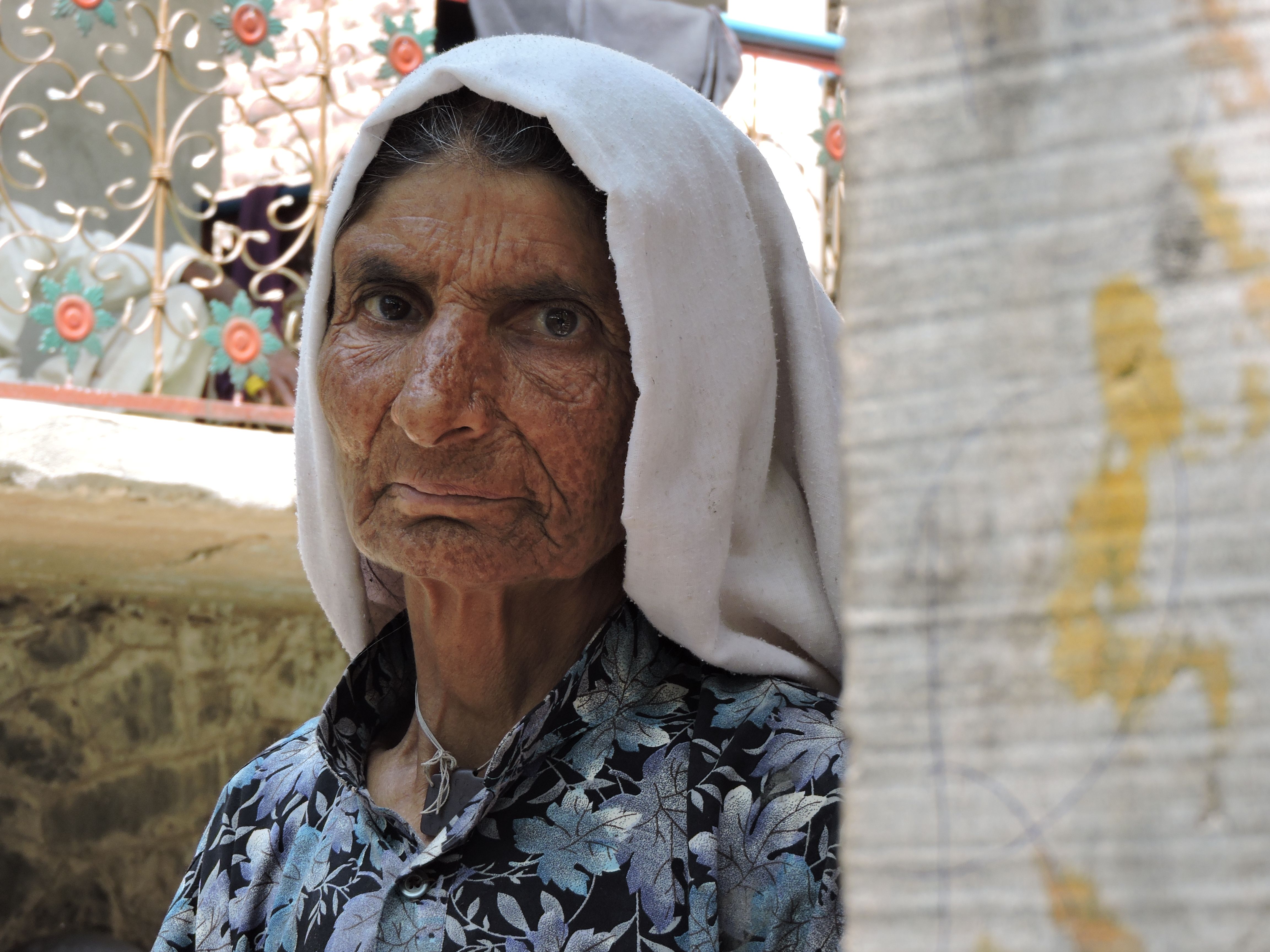(Recent flooding in India's Kashmir region has left at least four hundred dead and five hundred families still stranded on their rooftops, awaiting rescue, as reported by Betwa Sharma and Nida Najar in The New York Times on September 10, 2014. Many have run out of food, but claim the state government is making little effort to provide assistance.
But this week’s disaster is not the first time Kashmiri people have expressed frustration with the government. Pulitzer Center student fellow Reana Thomas from Loyola University Chicago traveled to Kashmir earlier this summer to explore ongoing ecological threats to Wular Lake.)
Thirty-one settlements comprised of almost 10,000 homes line the banks of Kashmir's Wular Lake.
Within these settlements, over half the residents have adapted to living with less than the basic necessities. Their children have seen a depletion of local resources while the elders remember a time when the lake was teeming with fish.
“The yield of fish has gone down markedly. Authorities are trying to put in spawns to produce a better yield,” said Abdul Gaffar, a resident of Wular.
“When I was young, we made less money, but everything was cheap. Now, everything is unaffordable, so we live on what we can,” Gaffar added.
Authorities are faced with the dilemma of bringing the communities out of poverty while also conserving the environment around the lake. The activities of the inhabitants often cause the siltation that lowers the water levels of the lake and add to the pollution levels. Yet, as the environment declines, so do the people's livelihoods.
Wular fisherman Hilal Ahmad Dar looked out at the surrounding plant-filled waters from his boat in the middle of the lake. “These weeds were not here five or six years ago. Now, when the lake dries up, the cattle come to the middle of the lake and eat the alligator weed. They die from it,” said Dar. “The people are growing poorer because of these losses.”
As the lake dries up, the fish are forced into a limited area whereby the catch is higher. But, the patches of invasive weeds also spread rapidly during this time because the people fragment the weeds without realizing it.
Many of the residents around the lake have settled there illegally. The government of Jammu and Kashmir wants to relocate them, but it is a tricky ordeal. They have started removing people who have encroached on Dal Lake in Srinagar and have run into complications.
Dar said that 600 to 700 licensed fishermen have left Wular to look for alternative means such as harvesting sand to make sandbags, selling vegetables, or basic construction work.
“We use the water as drinking water, but because of the poor water quality, the incidence of disease in the village is very high,” said Dar.
The bigger cities like Srinagar and Bandipora offer more manual labor job opportunities, so some of the people from Wular are moving to these cities to earn money. Yet, the untreated sewage and industrial waste from upstream cities like Srinagar flow down to Wular, which only exacerbates the initial ecological predicament.
“An awareness program is important for the people to recognize what is in the lake,” said Dar.
People living in houseboats are being resettled on plots of land on the outskirts of the city. However, Professor Manzoor Shah from the University of Kashmir says they do not have the skills to find other work. They have spent their entire lives either fishing or harvesting aquatic plants.
"[They] are happy to take the payment from the government to resettle. That often fails though because the relocated move back to their old homes because they do not know how to manage any other way,” Shah said. “The people being relocated may not even think they are in the midst a human rights issue.”







